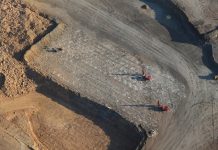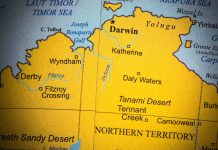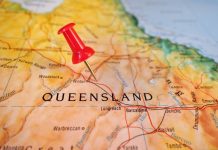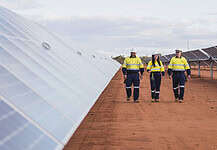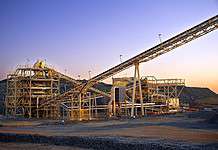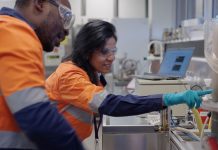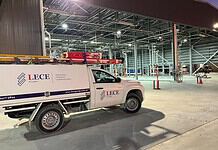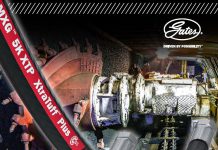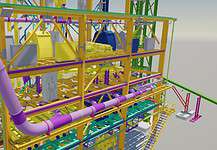
By Samantha James
AUSTRADE is finishing up a month of mining-focused investment activities designed to boost international trade and development opportunities for Australian Mining Equipment, Technology and Services (METS) providers.
The Government-run promotional agency for investment, trade and education was a key participant in the AIMEX conference and Africa Down Under forum in September.
Its overseas offices also coordinated Australian company participation at key mining events in major offshore markets including Indonesia, Brazil, Philippines, Peru and Kazakhstan.
Austrade’s Resource and Energy Trade team is supported by an international network comprising 80 offices in 60 countries that assist Australian METS suppliers to enter the global supply chains of major multinational mining companies.
The department works with industry partners including Austmine, HunterNet, Industry Capability Networks and other Federal and State government agencies to identify sound commercial opportunities.
Austrade National Resources and Energy manager Dr Nicholas Baker said that as international competition has increased during the mining downturn, events such as AIMEX and Africa Down Under are becoming even more important in promoting Australian METS capabilities.
He said that METS companies were looking to export products as a safeguard against the troubled domestic economy.
“While the domestic market has slowed down and commodity prices have hit rock bottom, it means that Australian companies are trying to be more strategic and more enthusiastic when it comes to exporting to make up for the downturn,” Dr Baker said.
“Queensland and WA were hit particularly hard by the downturn in the domestic mining sector. [These companies] have to export in order to stay afloat; they can’t rely on local jobs.”
While METS providers were exporting as a “follow on” during the boom – supplying Australian miners that had operations in other countries – the supply chain had since “flipped” and these companies were now searching for investment outside of the country, Dr Baker said.
Austrade organised the largest-ever Indian delegation to attend an Australian event, sizable delegations from China and Chile, and business development managers from Mongolia, Myanmar, Papua New Guinea, China and Canada to attend AIMEX.
Austrade also organised capability seminars in collaboration with Austmine, which saw guest speakers from around Australia showcasing METS capabilities in safety and innovation.
“While AIMEX itself in terms of the number of visitors overall was down and the mood was still a little bit pessimistic, what was good was that with those companies that had a presence at AIMEX Austrade was able to set up about 100 meetings with our international visitors,” Mr Baker said.
“All in all we were very pleased with the interest from our international guests, which is the flip side of what we’re seeing from our Australians.”
While competitors such as the US and China offer far cheaper labour costs, Mr Baker said higher costs in Australia had given the country a competitive edge in innovation.
“Labour costs in Australia are relatively high compared to our competitors [which] has indirectly enabled more innovation because people are looking at ways of reducing manpower and staff costs, which is leading to better automation,” Mr Baker said.
“So in some ways it has been a disadvantage for us on an international level, but on the other hand it’s helped us develop state-of-the-art automation like that used by Rio Tinto, and it’s helped us to become smarter in terms of processing and drilling.
“Australia is also well-known for its strong regulatory frameworks and policies, which can become an export in itself.”

